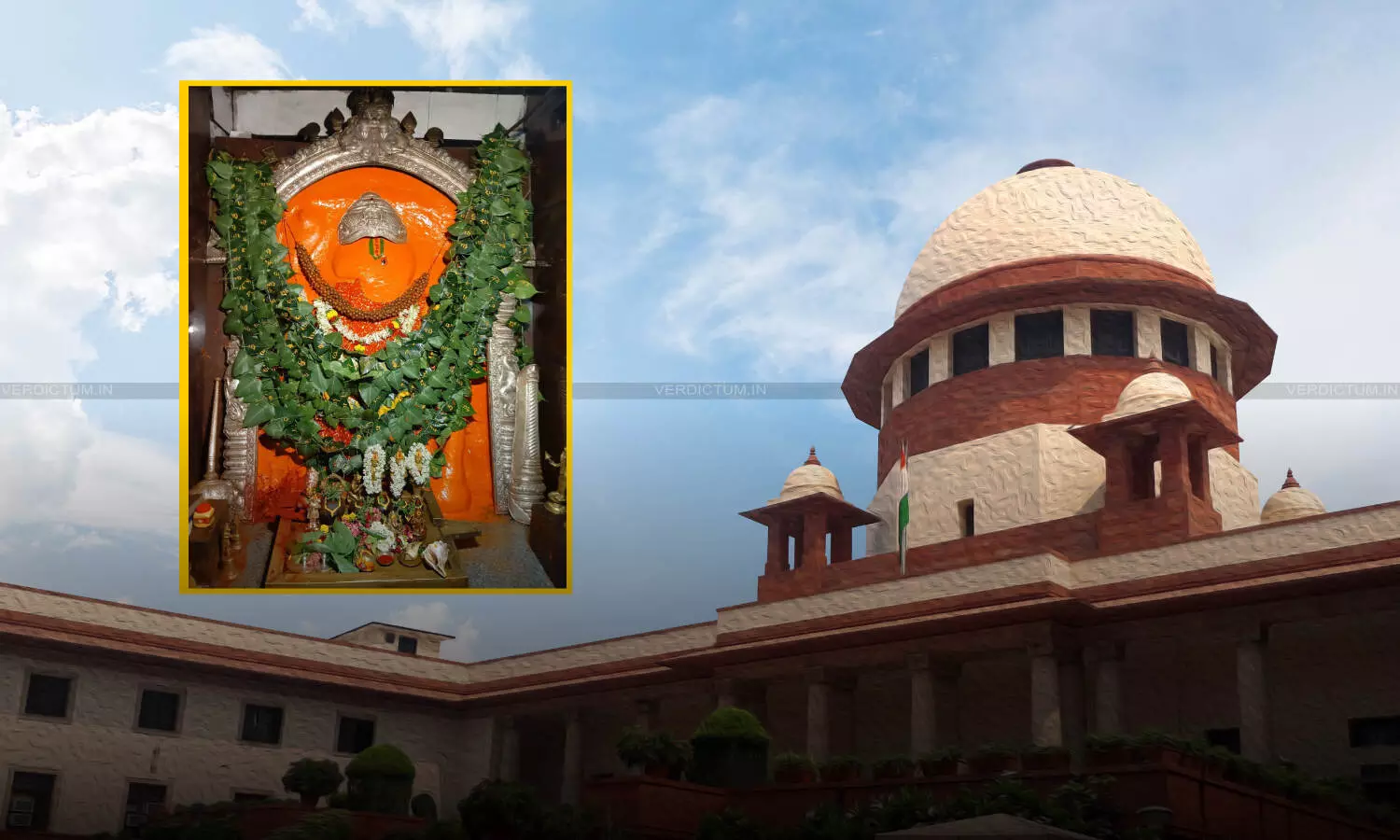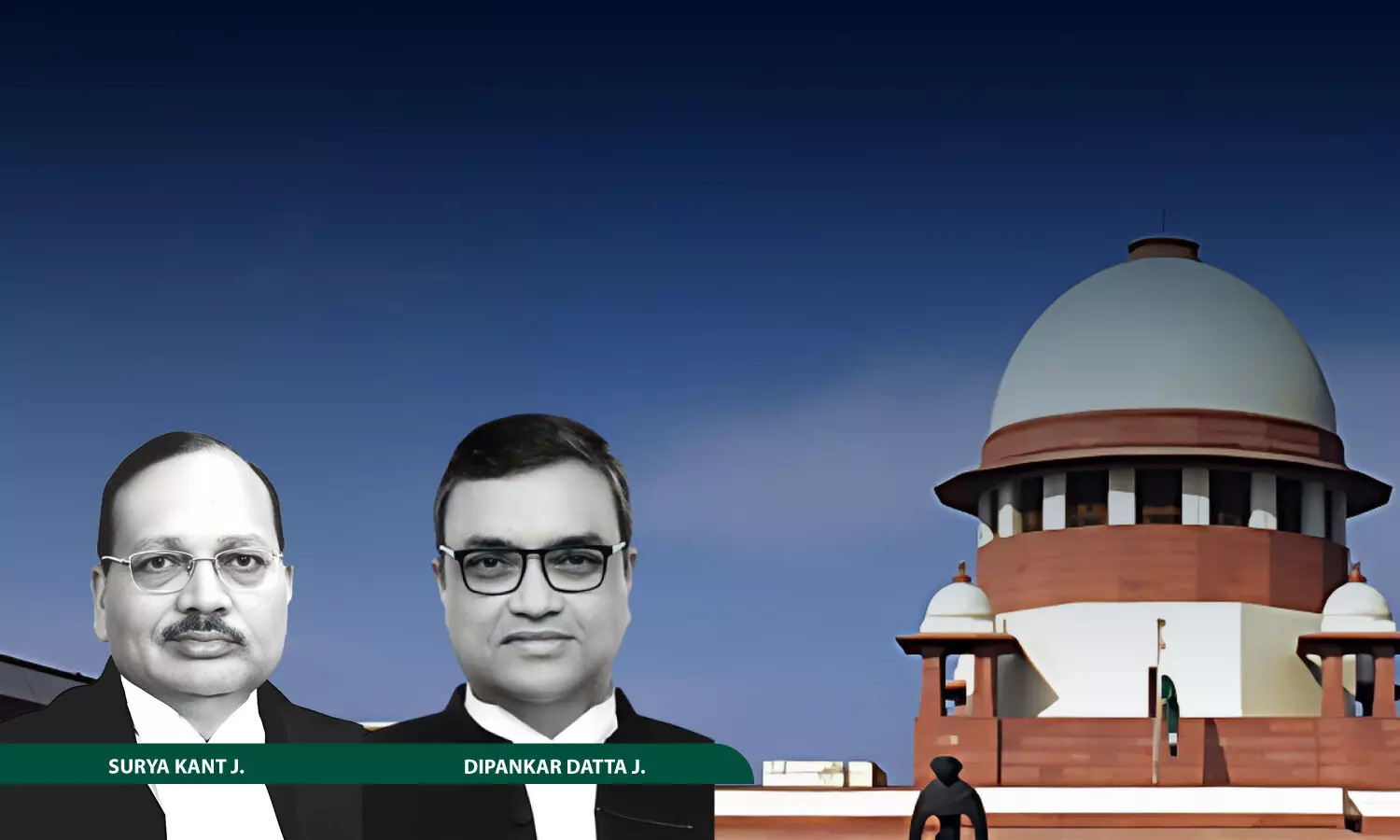
Supreme Court Issues Notice On Plea Anjanadri Anjaneya Temple Priest Seeking Protection Of His Religious Duties And Residence At Temple
 |
|The Supreme Court today issued notice on a Petition filed by Shri Vidyadas Babaji, a hereditary Priest of the Ramanandi Sampradaya, challenging the Karnataka High Court’s dismissal of his contempt plea against senior officials for allegedly violating judicial directions related to the Sri Anjaneya Temple situated on Anjanadri Hills in Koppal District.
The petition concerns the enforcement of an interim order dated February 14, 2023, that protected his rights to continue worship and reside on the temple premises.
A Bench of Justice Surya Kant and Justice Dipankar Datta directed that in the meantime, the authorities shall faithfully comply with the High Court’s interim directions. The Court ordered that the Petitioner be allowed to continue performing his duties as the Priest of the temple and reside in a single room with all previously provided basic amenities. The Court also cautioned that any defiance or non-compliance would be viewed seriously.
Appearing for the Petitioner, Advocate Vishnu Shankar Jain submitted that the temple had been under the spiritual stewardship of the Ramanandi Sampradaya for over a century and that the forced government takeover in 2018 violated the Karnataka Hindu Religious Institutions and Charitable Endowments Act, 1997. “From the past 120 years, my Sampradaya is doing worship of this temple. Suddenly in 2018, in a completely illegal manner, this temple is acquired in violation of provisions of Karnataka Act,” Jain submitted.
According to the petition, “The Petitioner is hereditary Priest/Principal Archak of Shri Anjaneya Kashkinda Kshetra, Anegundi, District Koppal, Karnataka. The Collector, Koppal vide order dated 10/18.07.2018 directed to take over the management of the temple by removing the Petitioner from performing his duties as Chief Archaka.” The takeover was challenged by way of a Writ Petition before the Karnataka High Court, which granted interim protection. On appeal, a Division Bench directed that the Petitioner continue as Archaka until further orders.

The petition states that the High Court, in its order dated February 14, 2023, directed, “The respondents shall not take any precipitative / coercive steps against the petitioner in relation to the subject temple or his residence in any manner whatsoever... It is made clear that this interim arrangement is without prejudice to the rights and contentions of the parties and subject to further orders of this Court and final outcome of these petitions.”
Despite the interim protection, the Petitioner alleges that on March 16, 2025, officials forcibly installed another Priest at the temple, obstructed his duties, threatened him, and misbehaved. The petition narrates, “When the Petitioner questioned the Respondents’ actions, they threatened him and used abusive language. They instructed him to ‘mind his own business’ and declared that the pooja and other duties would be performed solely by the third person they appointed.”
The petition also alleges targeted harassment, stating, “The Respondents, through their agents or third parties, cut off the electricity supply to the Petitioner’s residence within the temple premises. This action was intended to harass the Petitioner and force him to vacate the premises, directly violating the interim order’s prohibition on coercive steps... Further, the Respondents, through third parties (temple workers), attempted to frame the Petitioner by planting ‘ghanja’ (cannabis/drugs) on him.” A Legal notice was also issued to the authorities, but it allegedly received no response.
On April 9, 2025, the Karnataka High Court dismissed the contempt petition, holding that the Petitioner failed to establish a prima facie case, citing the absence of supporting documentation such as FIRs or affidavits. The Petitioner challenged this dismissal, stating, “Because the Hon’ble Court erroneously held that the Petitioner has failed to establish a prima facie case as no FIR was lodged... It is not incumbent for the complainant to lodge FIR in respect of violations made by Respondents but it is sufficient that action is taken promptly by sending notice to the concerned authorities.”
The petition further states, “The failure of State officials to comply with judicial directions protecting religious duties and residence of a temple priest amounts to a contempt that threatens the authority of the judiciary and the rule of law.” It contends that the High Court imposed an excessively high evidentiary burden at the threshold stage and failed to address continuing violations of fundamental rights under Articles 21 and 25 of the Constitution.
Cause Title: Shri Vidyadas Babaji v. Smt. V Rashmi Mahesh & Ors. (Diary No. 24593/2025)